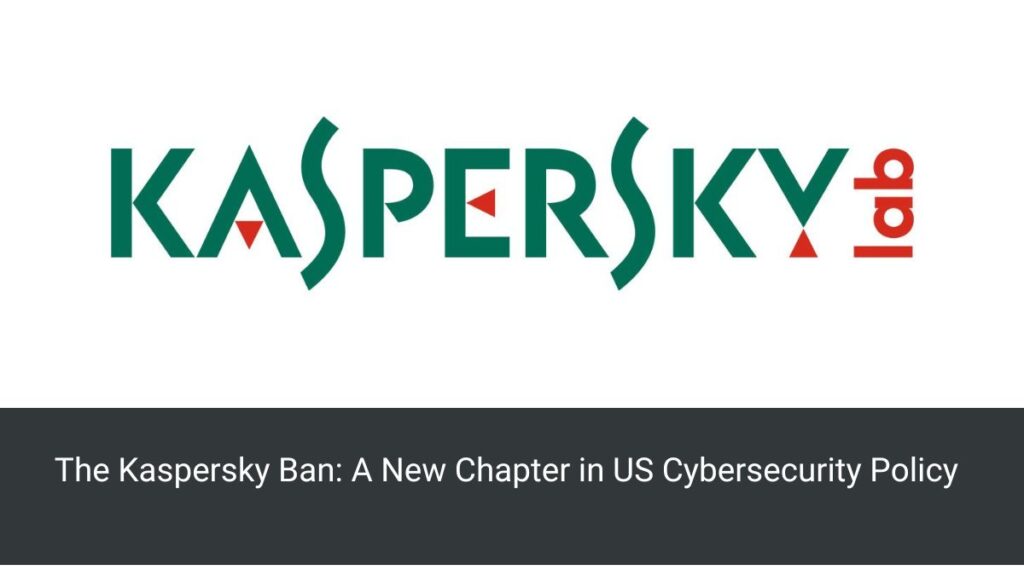In an increasingly digital world, the line between national security and consumer technology continues to blur. The recent decision by the Biden administration to ban the sale of Kaspersky Lab’s antivirus software in the United States marks a significant milestone in this ongoing saga. This move, announced on June 20, 2024, has sent ripples through the cybersecurity industry and highlighted the complex relationship between global technology companies and national security concerns.
The Decision and Its Implications
A Bold Move in Uncertain Times
The Commerce Department’s announcement to bar the sale of Kaspersky’s antivirus software in the US came as a shock to many. Commerce Secretary Gina Raimondo didn’t mince words when explaining the rationale behind this decision. “Russia has shown it has the capacity and the intent to exploit Russian companies like Kaspersky to collect and weaponize the personal information of Americans,” she stated during a press briefing.
This statement underscores a growing concern among US officials about the potential for foreign-owned software to be used as a tool for espionage or cyberattacks. The decision wasn’t made lightly, and it reflects a broader shift in how the US government views cybersecurity threats from abroad.
The Technical Risks
At the heart of the government’s concerns is the privileged access that antivirus software has to a computer’s systems. This access, while necessary for the software to function effectively, could potentially be exploited to:
- Steal sensitive information from American computers
- Install malware
- Withhold critical updates
These risks are particularly alarming when considering that Kaspersky’s customer base includes critical infrastructure providers and state and local governments.
Kaspersky’s Response and the Road Ahead
A Company in the Crosshairs
Kaspersky, for its part, has vehemently denied any wrongdoing. In an emailed statement, the company expressed its belief that the US decision was based on “the present geopolitical climate and theoretical concerns, rather than on a comprehensive evaluation of the integrity of Kaspersky’s products and services.”
This isn’t the first time Kaspersky has found itself in the spotlight. In 2017, the Department of Homeland Security banned its flagship antivirus product from federal networks, citing ties to Russian intelligence. The company has consistently maintained that it is a privately managed entity with no ties to the Russian government.
The Impact on Kaspersky’s Business
The new restrictions, set to kick in on September 29, 2024, will have far-reaching consequences for Kaspersky’s operations in the US. Not only will new sales be blocked, but existing customers will also be barred from downloading software updates. This could potentially leave users vulnerable to new cybersecurity threats if they don’t switch to alternative solutions quickly.
Moreover, the decision to add three units of the company to a trade restriction list will likely deal a significant blow to Kaspersky’s reputation and overseas sales. The company generated revenue of $752 million in 2022 from more than 220,000 corporate clients across 200 countries. This ban could see a substantial portion of that revenue disappear.
The Broader Implications for Cybersecurity
A New Era of Digital Sovereignty
The Kaspersky ban is part of a larger trend towards what some are calling “digital sovereignty.” Countries are increasingly wary of relying on foreign technology for critical infrastructure and national security. This shift has implications not just for cybersecurity companies, but for the entire tech industry.
As Democratic Senator Mark Warner, chair of the Senate Intelligence Committee, put it: “We would never give an adversarial nation the keys to our networks or devices, so it’s crazy to think that we would continue to allow Russian software with the deepest possible device access to be sold to Americans.”
The Challenge for Global Tech Companies
For global tech companies, especially those based in countries with complex geopolitical relationships with the US, this decision serves as a wake-up call. It underscores the need for transparency, robust security measures, and possibly even restructuring to ensure that their products can withstand scrutiny from national security agencies.
The Future of Cybersecurity Policy
A Balancing Act
As we move forward, policymakers will need to strike a delicate balance between national security concerns and the benefits of a global, interconnected tech ecosystem. The Kaspersky ban sets a precedent that could have far-reaching consequences for international trade and technology development.
The Need for International Cooperation
While national security is paramount, there’s also a strong argument for increased international cooperation on cybersecurity issues. Cyber threats don’t respect national boundaries, and a fragmented approach to cybersecurity could ultimately leave everyone more vulnerable.
A Call for Vigilance
The Kaspersky ban serves as a stark reminder of the complex interplay between technology, geopolitics, and national security. As consumers and businesses, we must remain vigilant about the software we use and the potential risks it may pose.
At the same time, we should encourage our policymakers to pursue balanced, evidence-based approaches to cybersecurity that protect our national interests without stifling innovation or international cooperation. The digital landscape is constantly evolving, and our policies and practices must evolve with it.
In this new era of heightened cybersecurity awareness, we all have a role to play in safeguarding our digital future. Whether you’re a government official, a business leader, or an individual user, staying informed and making thoughtful decisions about your technology use has never been more important.

